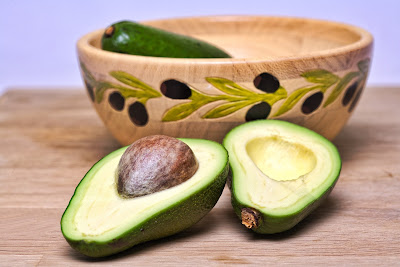Cancer is among the leading causes of death worldwide.
And while there have been lots of medical advancements towards treating some kinds
and boosting survival, there is still lots of work to be done.
That's why your
best bet is to play the preventive game: Work on ways to reduce your risk of
getting cancer in the first place.
We asked physicians and researchers how they dodge this deadly
disease. One answer is obvious: don't smoke. Here are 10 more ways these
experts protect themselves from cancer.
CANCER
PREVENTION TIP #1: MIST YOUR MUG
Your skin wins your body's
prize for "most likely to get cancer." Every morning, dermatologist
Joseph Sobanko, M.D., of the University of Pennsylvania, uses generic
broad-spectrum SPF 30 sunscreen with either zinc or titanium dioxide. He shuts his
eyes and sprays an even coat on his face after he brushes his teeth and combs
his hair.
CANCER
PREVENTION TIP #2: WRAP IT UP
A diet rich in vegetables,
fiber, and omega-3 fats can curb inflammation and help fight cancer. Philippe
Spiess, M.D., a genitourinary oncologist at Moffitt Cancer Center, eats what he
calls a "power egg breakfast wrap." He heats 1/4 cup of frozen
spinach in a pan and mixes it with an egg and 200 milliliters (nearly a cup) of
egg white. The cooked mixture then goes into a whole wheat wrap with a pinch of
cheese, a third of an avocado, and a tablespoon of hot sauce.
CANCER
PREVENTION TIP #3: POP LOW-DOSE ASPIRIN
Aspirin does more than soothe
aches and stifle heart attacks; it curbs colon inflammation. Daniel Rosenberg,
Ph.D., director of the Colon Cancer Prevention Program at University of
Connecticut Health, tells everyone he knows to take 81 milligrams a day. Ask
your doctor first, because some people run the risk of excessive bleeding.
"If your doctor approves, you should do it," he says. In a study
review in Annals of Internal Medicine, people who took 75 to 1,200
milligrams of aspirin daily for at least a year reduced their risk of dying of
colorectal cancer by 33 percent over 20 years.
CANCER
PREVENTION TIP #4: PITCH PLASTIC
June Chan, Sc.D., a professor
of urology at UC San Francisco, packs her lunch—but not in plastic, which may
contain cancer-promoting chemicals. She packs salad (kale, feta, pumpkin seeds,
raisins) in a mason jar. For more substantial grub, go with the stainless steel
3-in-1 ECO lunch-box
CANCER
PREVENTION TIP #5: SWEAT FOR 75 TO 150 MINUTES
Keith McCrae, M.D., an
oncologist with Cleveland Clinic Cancer Institute, works long hours but fits in
exercise six days a week. He loves road biking--25 to 30 miles most weekdays,
more on weekends. A study in JAMA Internal Medicine found that people who did
1.25 hours of vigorous or 2.5 hours of moderate activity a week had a 31
percent lower risk of dying of cancer than those who didn't work out. Exercise
helps tame inflammation, possibly reducing cancer risk.
CANCER
PREVENTION TIP #6: TAKE A SKIN SUPPLEMENT
Anthony Rossi, M.D., a
dermatologist at Memorial Sloan Kettering Cancer Center, takes nicotinamide
each morning with water and food. Nicotinamide is a form of vitamin B3 that may
reduce the formation of certain skin cancers, possibly by blunting the cell
damage induced by UV rays. (But taking it doesn't exempt you from using
sunscreen.) Always check with your doctor before starting a new supplement, of
course.
CANCER
PREVENTION TIP #7: BOLT DOWN SOME NUTS
When Matthew Yurgelun, M.D., a
medical oncologist at Dana-Farber Cancer Institute, needs a snack, he eats
almonds or pistachios. "It's a great way to quell hunger and keep me from
snacking on fatty or sugary foods that can contribute to weight gain and
obesity-related diseases, such as cancer," he says. A National Institutes
of Health study even showed that smokers who snacked on nuts reduced their risk
of lung cancer, possibly because nuts curb oxidative stress associated with
smoking. Eat 20 to 24 nuts a day. Carry them in an Altoids tin (a perfect fit).
CANCER
PREVENTION TIP #8: ORDER THE FISH
UCLA urologist Christopher
Saigal, M.D., eats fish but not meat. A typical dinner is a salmon fillet with
brown rice and vegetables. Try it twice a week. "I tell patients that
'heart healthy' foods have been associated with a lower risk of developing
prostate cancer and a lower risk of progression of prostate cancer after
diagnosis." Plus, a U.K. study review linked red and processed meats with
colorectal cancer.
CANCER
PREVENTION TIP #9: CALM DOWN
Chronic stress can feed
cancer. Here's your 15-minute prescription from urologist Nelson Bennett, M.D.,
of Northwestern University Feinberg School of Medicine: Sit with the door
closed, phone silenced. Inhale deeply through your nose and exhale from your mouth
10 times. Close your eyes and notice the sounds around you--even the hum of
fluorescent lights. Then bring your thoughts to your breaths. Don't worry if
your mind wanders. It took Dr. Bennett about 15 sessions to get comfortable.
"The more I practiced it, the easier it got," he says. You'll get
positive reinforcement: less stress with deadlines and better focus on demand
CANCER
PREVENTION TIP #10: START THE DAY GREEN
Green tea is packed with
antioxidants. Alan Wan, D.O., a medical oncologist at Northwestern Medicine
Kishwaukee Hospital, has a cup each morning. In a 2016 study, Mao Feng green
tea had one of the highest antioxidant levels per brew.





No comments:
Post a Comment